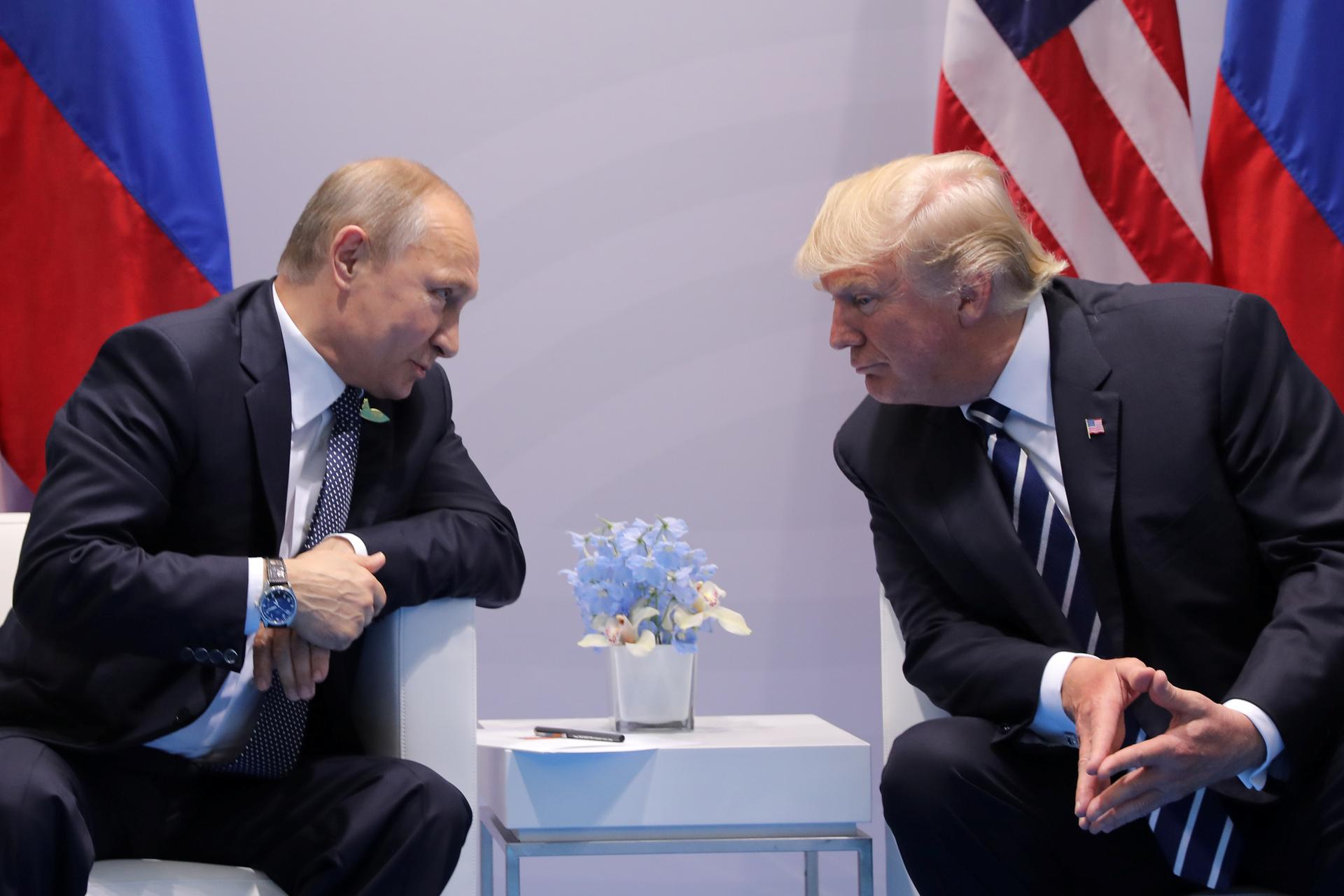European leaders ‘worried’ after Trump suggests working with Russia on cybersecurity
Russia's President Vladimir Putin talks to US President Donald Trump during their bilateral meeting at the G-20 summit in Hamburg.
President Donald Trump seems to be backing away from a plan to create an “impenetrable” cybersecurity unit with Russia.
Trump tweeted on Sunday that he wants to work with Russia to prevent “election hacking, & many other negative things."
But the president later returned to Twitter, saying the creation of such a unit was unlikely:
Trump backed away from the plan following fierce criticism from Democrats and Republicans alike.
Lindsey Graham, a member of the Senate's Armed Services Committee, said the idea of a joint cybersecurity unit was "not the dumbest idea I've ever heard, but it's pretty close."
His voice dripping with sarcasm, former presidential candidate John McCain told CBS he was "sure that Vladimir Putin could be of enormous assistance in that effort since he's doing the hacking."
Other US lawmakers took to Twitter to criticize the proposal.
“For European political leaders and their intelligence agencies, this is worrying because President Trump is [at] least considering those … steps,” Janda said. “Politically, it’s pretty disturbing.”
While there's a need to keep communication open with Russia, Janda says a bilateral agreement on cybersecurity "makes no sense."
“There is a difference between working with somebody on something — which you generally do with your allies — and just talking to countries which are adversaries," Janda said. "Russia these days is practically [an adversary] in Ukraine, in Syria and in cyberspace, as well.”
The suggestion is perhaps most disturbing to European leaders who have been taking steps to combat Russian interference in their upcoming elections.
The US ambassador to the UN, Nikki Haley, was among the few who defended Trump’s suggestion that the US could partner with Russia on cybersecurity.
"[It] doesn’t mean we ever trust Russia,” she said, according to The Guardian. “We can’t trust Russia, and we won’t ever trust Russia. But you keep those that you don’t trust closer so that you can always keep an eye on 'em and keep them in check.”
But Janda questions whether this approach would work.
“American intelligence agencies have tried” similar approaches during the Obama and Bush administrations, but “it has never worked out,” Janda said.
Agence France-Presse reporting was used in this story.
